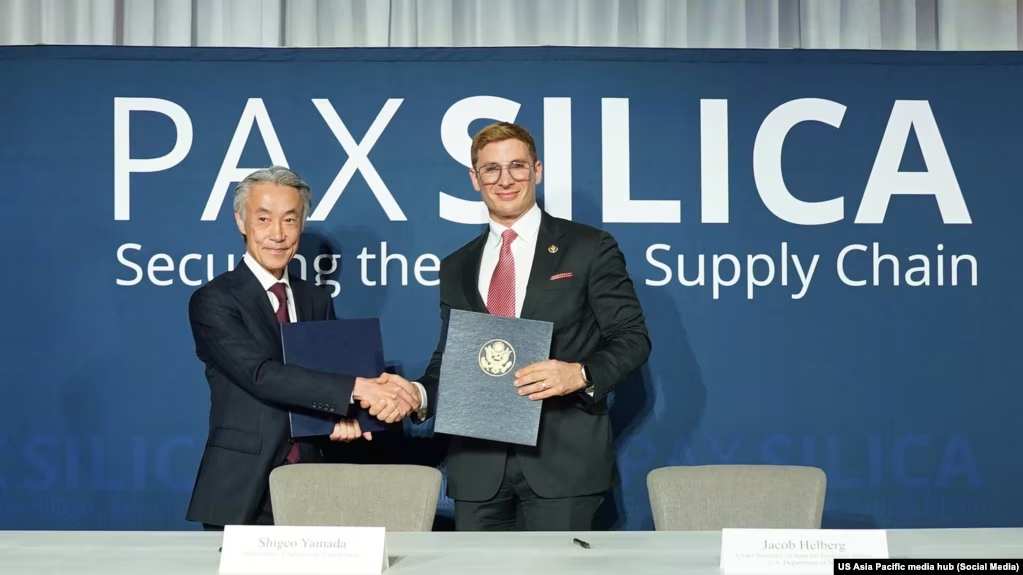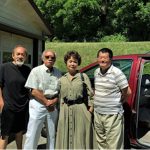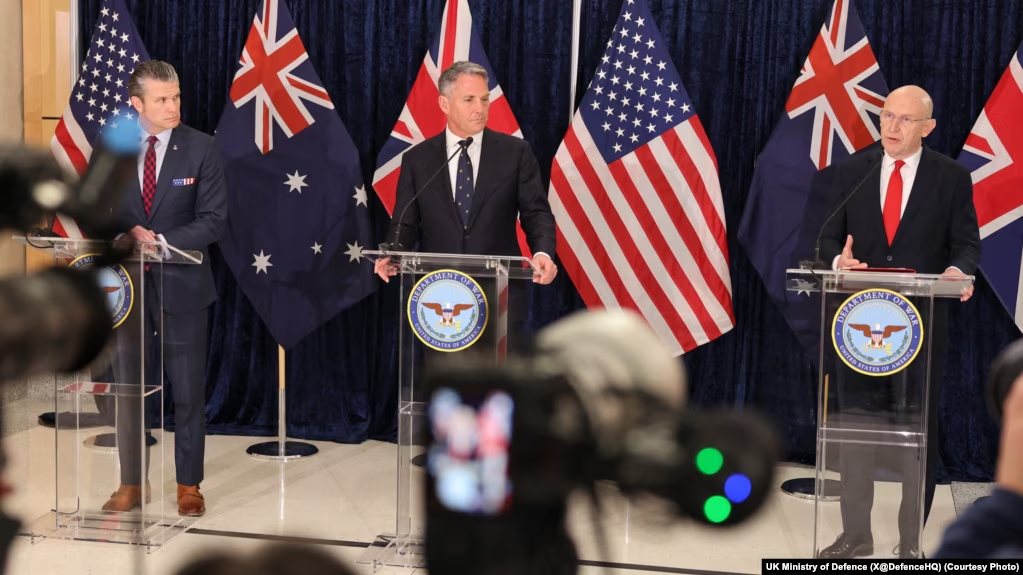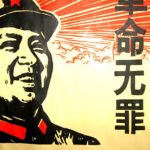2018-02-02
.jpg)
Pro-democracy activists (L-R) Joshua Wong, Nathan Law and Alex Chow, who were nominated by U.S. lawmakers for a Nobel Peace Price, in a file photo.
RFA
China’s foreign ministry hit out on Friday at the nomination of three former student leaders of Hong Kong’s 2014 pro-democracy movement for the Nobel Peace Prize, calling on member of the U.S. Congress to “stop meddling” in its internal affairs.
Senator Marco Rubio and Representative Chris Smith of Washington’s Congressional-Executive Commission on China (CECC) nominated Joshua Wong, Nathan Law, Alex Chow and the pro democracy Umbrella Movement in Hong Kong for the 2018 Nobel Peace Prize for their “peaceful efforts to bring political reform and self-determination to Hong Kong.”
Rubio and Smith’s nomination, which was supported by 10 other U.S. lawmakers, said they had made the nomination because the city’s “long-cherished autonomy continues to erode,” two decades after the handover to Chinese rule.
“Joshua Wong and his fellow pro-democracy advocates have been unflinching in their peaceful and principled commitment to a free and prosperous Hong Kong,” Rubio said in a statement on the CECC website on Thursday. “They are an inspiration and their cause has reverberations far beyond their city.”
Smith said the trio were in the tradition of all great Nobel Peace Prize laureates.
“They continue to hold up a mirror to the ugly face of authoritarianism and show us again that the desire for democracy and human rights are universal ideals, shared by all people, everywhere,” he said.
He said Hong Kong’s democracy movement should also be awarded the prize as a way of marking the death in custody last July of political prisoner and 2010 peace laureate Liu Xiaobo.
“It would be both a fitting tribute and a reminder that the struggle for democracy and rights are not alien to the people of mainland China, but an indelible part of their great history and culture,” Smith said.
But China’s Foreign Ministry said that those involved in the protests had been punished in accordance with the law, saying that the entire movement was “illegal from head to toe.”
“We urge the relevant U.S. Congressmen to stop interfering in Hong Kong and China’s internal affairs, and do more to benefit the development of Sino-U.S. ties rather than the opposite,” it said in a statement sent to Reuters.
Chinese University of Hong Kong professor Chan Kin-man, who initiated the movement along with Hong Kong University law professor Benny Tai and the Reverend Chu Yiu-ming, welcomed the nomination of the three activists.
‘Worthwhile’ recognition
“This is very worthwhile; it’s a form of recognition of the movement by the international community,” Chan told RFA on Friday. “This movement, as well as fighting for democracy, embodied the spirit of peaceful protest, which was hugely important, especially during crackdown with tear gas.”
“In a lot of places, you would have had people burning police cars, or even police stations, but we saw that the people of Hong Kong showed great restraint, and this generation of Umbrella Movement activists has since been persecuted,” Chan said.
“But at least their nomination, their consideration for this prize, will show Beijing that the price they have paid for such oppression was a very high one,” he said.
But pro-Beijing politician Starry Lee said the move will likely damage the relationship between Hong Kong and the ruling Chinese Communist Party, and blamed the pro-democracy movement for triggering a more hands-on approach to governing the city, which was promised a “high degree of autonomy” after the 1997 handover.
“This whole thing is unbelievable,” Lee told reporters on Friday. “If we think back, we will see that Occupy Central harmed Hong Kong in so many ways. Since the movement, we have seen no real democratic progress, and in fact the central government is even more worried about us.”
“This has meant that there is now far less room for maneuver when it comes to [Hong Kong’s autonomy].”
But pro-democracy lawmaker Dennis Kwok said Nobel Peace Prize nominations don’t target specific countries.
“I think everyone is getting a little over-sensitive here, because actually anyone in the world is allowed to put in a nomination,” Kwok said. “The bar for nomination is set very low compared with the bar for actually winning the Nobel Peace Prize, so I don’t think any country or government needs to feel attacked right now.”
But Kenneth Chan, a politics and international relations professor at Hong Kong’s Baptist University, said the move was definitely a political one.
“In the eyes of the U.S., China’s rise to superpower status represents a definite threat; it’s competition, so I think we should see the nomination of Joshua Wong and the others against that background,” he said. “Of course there is a hidden political meaning.”
“But while it’s making a huge fuss and saying that Hong Kong is being used as a pawn between China and the U.S., they should also perhaps reflect on the relationship between cause and effect,” he said.
“If Hong Kong’s autonomy hadn’t been eroded, and the human rights situation in China hadn’t gotten worse, then perhaps the international community would have had no reason to speak out,” Chan said.
‘Chilling effect’
The letter signed by Smith, Rubio and 10 other U.S. lawmakers said Wong, Law and Chow had shown “civic courage, extraordinary leadership, and an unwavering commitment to a free and prosperous Hong Kong that upholds the rule of law, political freedoms and human rights.”
Wong, 21, Law, 24 and Chow, 27, have all been jailed in connection with their role in the movement. Wong is currently out on bail pending an appeal of a contempt of court conviction relating to police attempts to clear a major highway at the end of the 79-day disobedience campaign.
Some 1,000 people were arrested in connection with the Umbrella Movement during its existence, mostly for public order offenses like “unlawful assembly,” “obstructing police,” “assaulting officers,” and “contempt of court.”
The New York-based group Human Rights Watch (HRW) said at the time that the arrest and jailing of peaceful Occupy Central protesters raised concerns about Hong Kong’s adherence to international human rights standards.
While most of those detained were quickly released, more than 160 have been charged so far under the city’s Public Order Ordinance, a body of rules governing demonstrations that has been criticized by the United Nations Human Rights Committee, HRW said.
Hong Kong was promised a “high degree of autonomy” under the terms of its 1997 handover from Britain to China, but many say the city’s traditional freedoms are now a thing of the past, as Beijing seeks to wield ever greater influence over the city’s media, publishing, and political scene.
Leaders of the 79-day civil disobedience movement rejected a Aug. 31, 2014 decree from China’s parliament, the National People’s Congress (NPC), which required the vetting of candidates for the city’s top job by a pro-Beijing committee, as “fake universal suffrage.”
Wong made his debut in protest politics by founding the student activist group Scholarism at the age of 15 and campaigning against a “patriotic education” program planned by Beijing officials for Hong Kong’s schools that protesters rejected as “brainwashing.”
Law was a former secretary General of the Hong Kong Federation of Students (HKFS) at the time of the Occupy Central movement, and later went on to form the post-protest party Demosisto, win a seat on the Legislative Council (LegCo), only to have it stripped from him along with five other lawmakers after a retroactive Beijing decree required their oaths of allegiance to be “sincere and serious.”
Chow played a key role in mobilizing mass student protests in 2014, as leader of the HKFS.
All three were jailed on public order offenses last year after Hong Kong’s department of justice requested a court review of their previously non-custodial sentences.
“Continued harsh measures against pro-democracy advocates will no doubt have a chilling effect,” the U.S. lawmakers’ letter said.









